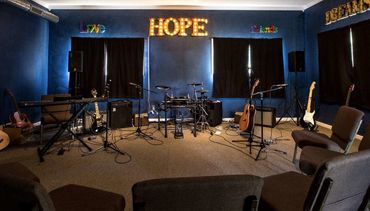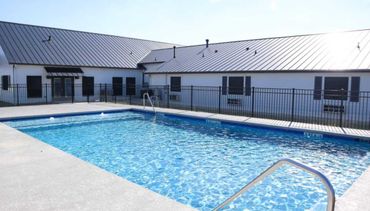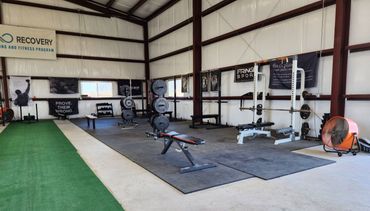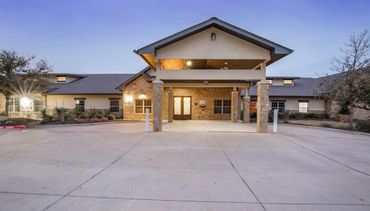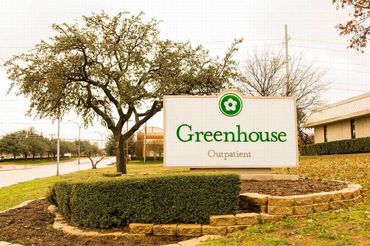
Texas Inpatient and Outpatient Rehab Centers Near Me for Drug and Alcohol Addiction
Like so many other places around the United States, many people in Texas are struggling with addiction and substance misuse. More than 4500 people died from drug overdoses in 2020, a 33% increase from 2019.1
Fortunately, there is help available for Texans who are struggling with addiction. Rehab programs in Texas include detox centers, inpatient, and outpatient facilities. If you or someone you love needs help with a substance use disorder, we encourage you to take the first step today toward a healthier lifestyle.
Start your journey to recovery by researching top rehab centers in Texas and reading reviews from others who have completed treatment programs. Learn about the amenities offered at rehab facilities, types of treatment programs, and information about costs.
Addiction treatment centers in Texas
Open to Travel? Check out Top-Rated Options
All Addiction treatment centers in Texas
Are You Covered For Treatment?
- Houston Rehabs
- Dallas Rehabs
- Austin Rehabs
- San Antonio Rehabs
- Fort Worth Rehabs
- El Paso Rehabs
- Lubbock Rehabs
- Laredo Rehabs
- Amarillo Rehabs
- Arlington Rehabs
Rehab Insurance Coverage in Texas
Rehab Centers in Texas
Information About Rehab in Texas
Latest Reviews
Latest Reviews of Rehabs in Texas
Symetria — Houston Outpatient Rehab
Counselors genuinely care about my happiness and sobriety. The facility feels safe and welcoming. Everyone knows my name and is happy to see me.
Austin Recovery
I never would have believed that I would be 21 years plus drug and alcohol free. I was so beat down when I entered treatment I just wanted to stop using drugs and this program has given me so much more. It has all you need to be successful, if you are ready for the tools offered by this program. They truly saved my life.
Drug and Alcohol Treatment Facilities in Texas
More than 600 substance use treatment facilities operate in Texas offering outpatient, detox, inpatient, outpatient, aftercare, and other support services.4
Addiction rehab programs in Texas also have services that include:4
- Ongoing evaluation and assessment.
- Behavioral therapy.
- Medication management.
- Social skills training.
- Case management.
- Vocational training.
- Aftercare planning.
Addiction Statistics in Texas
In 2014, alcohol was the primary substance used in Texas. In 2021, The University of Texas at Austin reports a steady increase in the use of methamphetamine, heroin, and fentanyl.2 Between 2017 and 2019, approximately 845,000 Texans struggled with a serious mental health issue, and 1.4 million Texans reported seeking services for any mental illness.3
Additional statistics indicate that many people in Texas are struggling and in need of help:3
- On average, between 2016 and 2019, 33.7% of Texas youth between the ages of 12 to 17 received care for depression.
- Some 823,000 Texas adults aged 18 to 25 reported using marijuana in the past year.
- Among that same group, 23,000 reported using opioids.
- Between 2017 and 2019, 265,000 of those same Texas adults were diagnosed with alcohol use disorder.
How Much Does Rehab Cost in Texas and Is Insurance Accepted?
The cost of receiving treatment at top rehab centers in Texas can feel overwhelming, however, there are numerous resources to help you get quality care.
Many insurance plans, including Medicare and TX Medicaid, offer coverage for certain addiction treatment services, so if you have health insurance, contacting your provider is a great place to start.
Several charitable organizations offer rehab scholarships for those in financial need. There are also low-interest health care loans, which enable you to pay for rehab programs in Texas with a low monthly payment that fits your budget.
The cost of paying for addiction treatment varies based on a number of factors, including:
- Treatment type (inpatient, outpatient, luxury, private, executive, standard inpatient).
- Duration of treatment.
- Medications administered.
- Facility amenities and activities.
- Location of the facility.
Ready to Get Help and Change Your Life for Good?
Insurance Providers
Learn more about some addiction treatment insurance providers:
Sources
- Centers for Disease Control and Prevention, (2021). National Center for Health Statistics: Provisional Drug Overdose Death Counts.
- The University of Texas at Austin: School of Social Work. (2021). Drug Trends In Texas 2021: A Report to the National Drug Early Warning System
- Substance Abuse and Mental Health Services Administration (SAMHSA), (2019) Behavioral Health Barometer: Texas, Volume 6
- Substance Abuse and Mental Health Services Administration (SAMHSA), (2020). National Survey of Substance Abuse Treatment Services (N-SSATS) Report.
Does Your Insurance Cover Treatment in Texas?
Blue Cross Blue Shield: Texas Insurance for Drug and Alcohol Rehab Centers
With almost 30 million residents, Texas is one of the most populous states in the country.1 Unfortunately, much like the rest of the United States, Texans are battling with drug and alcohol addiction and are in the midst of an opioid crisis.
If you are looking for a drug and alcohol rehab center and have health care through BlueCross BlueShield of Texas, you can rest assured that addiction services such as inpatient and outpatient treatment are covered under your plan.
Does BCBS Cover Drug and Alcohol Addiction Treatment in TX?
BlueCross BlueShield of Texas (BCBSTX) offers coverage in Austin, Dallas, Houston, San Antonio, and across the entire state of Texas. A BCBSTX health care plan includes services such as preventive care, prescription drug coverage, in-network doctors and hospitals, as well as mental health and substance abuse treatment.2
Mental health and substance abuse treatment are considered essential health benefits and services, and all BCBSTX health plans cover these services.2 These benefits and services can include detox, medications, and counseling services for drug and alcohol addiction.



